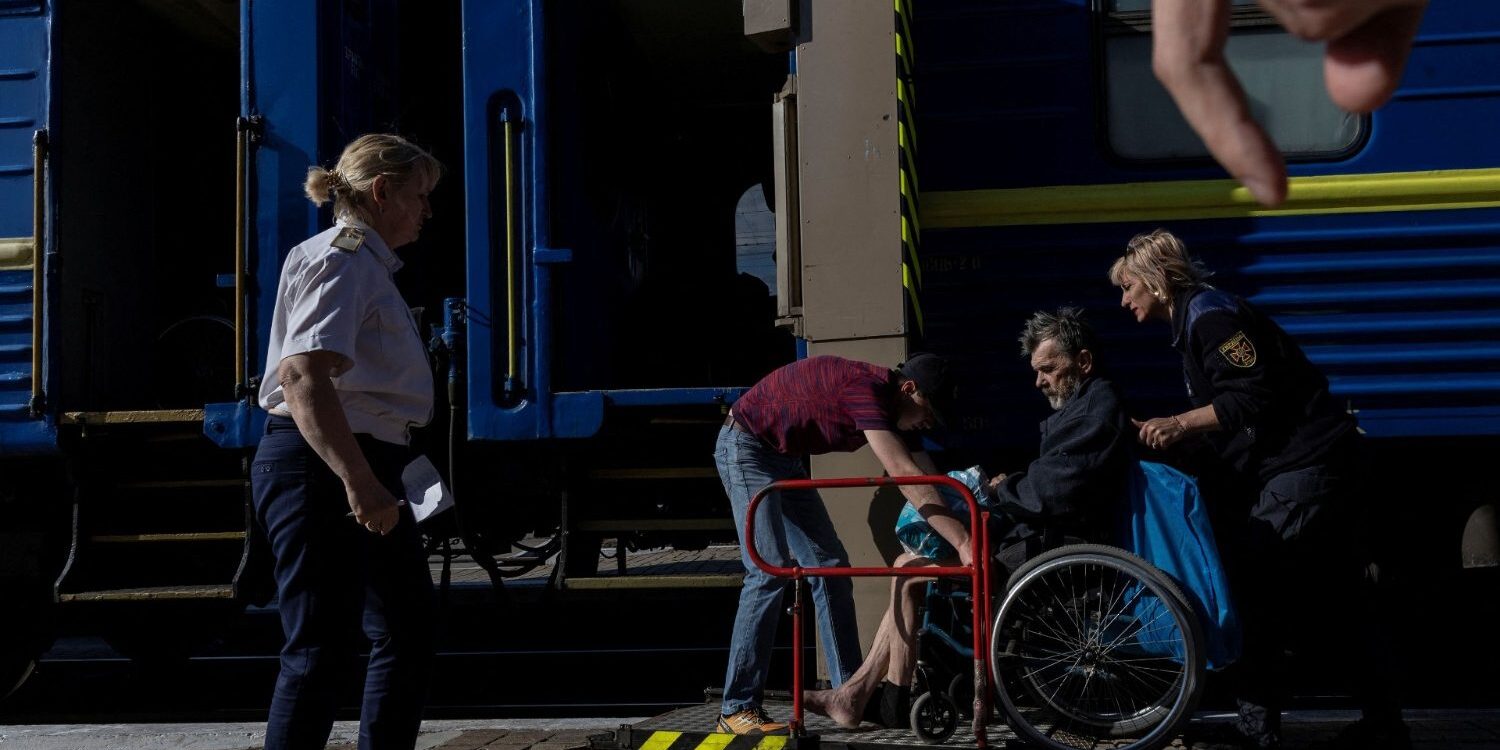World Communications Day to be observed on Sunday focuses on the theme of listening and emphasises the urgency of putting the person at the centre of information. As Pope Francis emphasised, there is “no good journalism without the ability to listen’.” This is all the more evident during the pandemic and now as the tragic war wages on in Ukraine.
“Pope Francis is a man who not only hears, he listens.” It is significant that this is how the secretary-general of Caritas-Spes Ukraine, Father Vyacheslav Grynevych, defined the Holy Father after a recent meeting with him at his residence Casa Santa Marta. The Pallottine priest confided that precisely this – “listening” – is in fact the most important task that he, like the others working with and volunteering for Caritas Ukraine, has been carrying out, beyond their humanitarian work since the Russian invasion began on 24 February.
Listening to the suffering of mothers who have lost their children, of fathers who are fighting to defend their homeland and do not know if they will see their families again. Now they listen to the inconsolable cries of children who, for almost a hundred days, have been living in terror, drawn into a cruel war that has interrupted the natural course of their existence made up of games, school and family affection, as every child’s life should be. To listen. Not to hear. Because to hear, requires only your ear, but to listen, you need your heart. The heart is at the center of listening.
When Pope Francis chose listening as the theme of this year’s World Communications Day, his reflection was primarily based on the traumatic experience of the Covid-19 pandemic. He was referring to the existential loneliness a part of humanity faced due to the anti-contagion restrictions that prevented people from having contact with one another. It is no coincidence, we read in the Message for the Day to be celebrated on Sunday, that “the ability to listen to society is more precious than ever in this time wounded by the long pandemic.”
For Pope Francis, “we need to lend an ear and listen deeply, especially to the social unease increased by the slowdown or cessation of many economic activities.” To be able, therefore, to capture the desire to be heard, which has grown out of all proportion in the folds of that unnatural silence that has descended on our communities for so many months, making us rediscover the need to make ourselves close to another (a theme, the latter, of Francis’ first Message for Social Communications, in 2014). Only if you get close to one another, if you put yourself in your neighbour’s shoes, as if you are only a heartbeat away – the Pope seems to suggest – can you truly listen.
If, therefore, the theme of listening arose, first and foremost, from the experience of the pandemic, this has no less value in the tragic context of the war in Ukraine, as well as every conflict. If, in fact, in the pandemic, the ability to listen had to find the right frequencies in silence, now it is in the thunder of weapons, in the noise of war, that this attitude of the heart must be able to intercept the voice of those who suffer. According to a functionalist view of communication, it ‘happens’ if there is a sender, a receiver and a shared code. Hence, it is a communication centred on ‘saying something’ rather than ‘listening to someone.’ The war, just like the pandemic, has instead demonstrated what the philosopher Abraham Kaplan, who was born in Odessa and quoted by the Pope in the Message, had already indicated, namely that authentic communication is not reduced to the juxtaposition of two monologues (a duologue), but requires that the ‘I’ and the ‘you’ are both ‘outgoing,’ leaning towards each other.
“Listening,” writes Pope Francis, “is therefore the first indispensable ingredient of dialogue and good communication. One does not communicate if one has not first listened and one does not do good journalism without the ability to listen.’
Here, in this last statement, we find an exhortation and an assignment for information workers, especially at such a delicate and unpredictable historical juncture as the one we are experiencing. To provide good communications, good journalism, one must listen. First of all, we must listen to those who have the weakest voice. A task that is being performed, even risking their own lives, by the many journalists on the ground in Ukraine as well as those at work in every other place where more or less forgotten wars are being fought.
Listening requires patience and humility. A virtue that, as the Pope stated when meeting the journalists of the Foreign Press Association in Italy on 18 May 2019, makes free not mediocre. ‘The humble journalist,’ he stated on that occasion, ‘is a free journalist. Free from conditioning. Free from prejudices, and therefore courageous.’
A freedom that must be preserved today more than ever, in the knowledge that engaging in communications is not just a profession, but a mission to serve the common good.
By Alessandro Gisotti Vatican News







